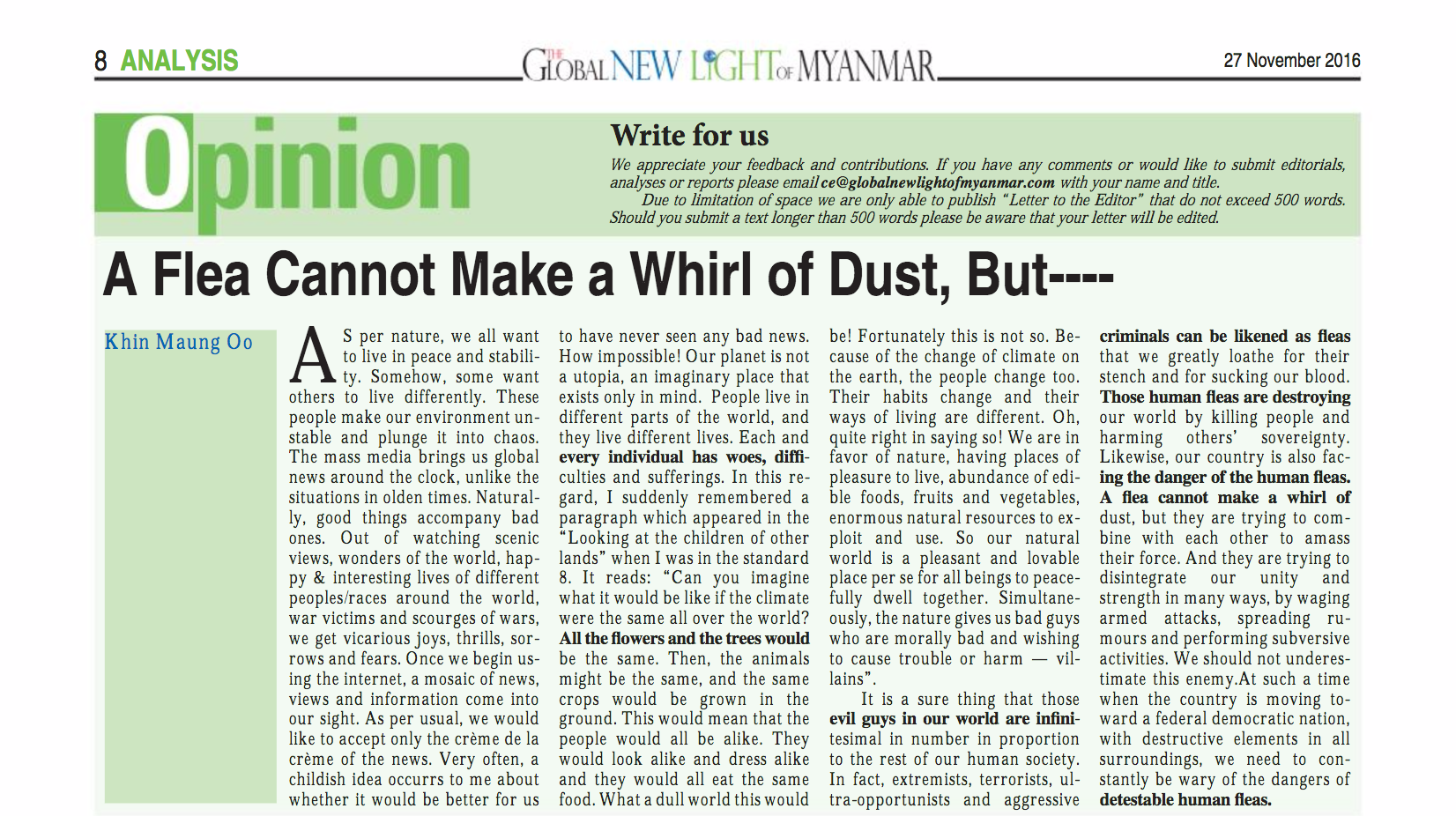When you’ve built a career out of repeating a single opinion, you owe it to your supporters to try to make it interesting. That’s what Myanmar’s most famous Muslim-hating monk Wirathu seems to be doing in a video that surfaced this week.
The video shows Wirathu giving a speech on Sunday to a crowd in Kayin State. In his speech, he calls Rohingyas “animals” and uses scatological humor to argue that Rohingyas are lying about their indigeneity to Myanmar.
#Wirathu‘s #HateSpeech on Sept 10, 2017. He compares #Rohingya with animals. Watch the clip with subtitles. Thanks bro @mdskar for this. pic.twitter.com/yxc0rkQE4b
— Ro Nay San Lwin (@nslwin) September 12, 2017
“Do these animals eat with their asses when they have meals?” Wirathu coolly quips to a crowd of hundreds, many of whom respond with applause and laughter.
He goes on: “Do they put rice into their bottoms instead of their mouths? When they go to toilets, do they invert their asses and excrete from their mouths?”
More applause.
He then gets to his point: “Some beasts, who are opposite to all in everything, are claiming they are natives.”
This is not the first time Wirathu has used dehumanizing language to stoke fear and hatred against members Myanmar’s Muslim population. He has called Muslims “snakes” and said living among Muslims is like “sleeping next to a mad dog.” He says Muslims are “devouring the Burmese people” and “destroying Buddhism.”
So while his comments on Sunday hardly come as a surprise, his jokes are an important reminder of the danger he presents to millions of lives in Myanmar. Even as hundreds hundreds of thousands of Rohinyas who were born in Myanmar have been forced to flee for their lives in the last three weeks, Wirathu and his followers are fearful enough or hateful enough to laugh in approval at language that dehumanizes their compatriots.
Foreign leaders have already accused Myanmar of committing genocide against the Rohingya, but even for those who are more skeptical, incidents like Wirathu’s speech should serve as a grave warning about how much is at stake for Myanmar right now.
Dehumanization – language that casts members of society as subhuman, as unworthy of compassion – has been a precursor to every modern genocide. It renders them socially dead before they are actually dead. And it seems perfectly acceptable in Myanmar society.
Last year, a Buddhist lawmaker in the Rakhine State parliament told a BBC reporter that neither Myanmar soldiers nor local Rakhine men could possibly have raped Rohingya women because they are “very dirty.” An op-ed in the state-run Global New Light of Myanmar last November referred to Rohingyas as “detestable human fleas.”

Restricting this kind of speech may not be the answer; in fact, it may have the opposite of its intended effect. But what could really help right now is some moral guidance from at least one Myanmar leader that promotes empathy and multiculturalism – that makes genocidal language less acceptable than being Rohingya.




